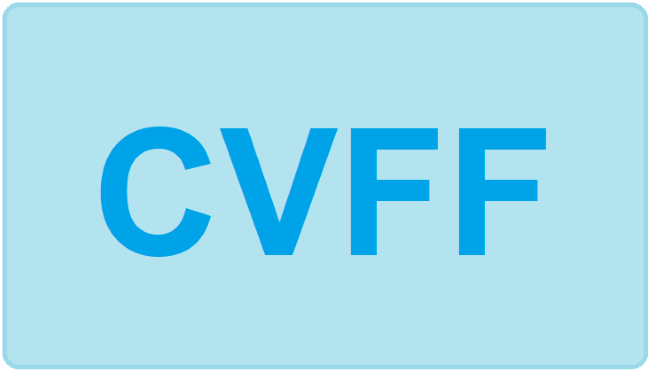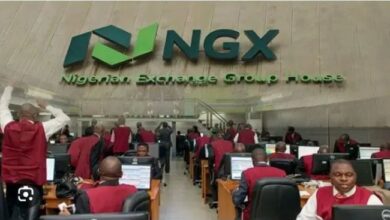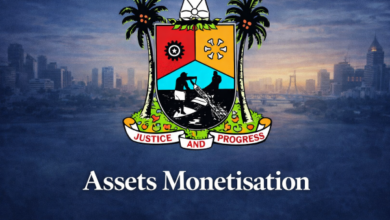CVFF Rollout Earns Maritime Sector Praise as Nigeria Moves to Strengthen Blue Economy

Nigeria’s long-awaited effort to fully implement the Cabotage Vessel Financing Fund (CVFF) has gained significant momentum — and with it, growing applause from blue economy experts, maritime lawyers, and shipowners.
At the 2025 One-Day Maritime Law Seminar hosted in Lagos by the Nigeria Maritime Law Association (NMLA), industry leaders commended the Nigerian Maritime Administration and Safety Agency (NIMASA) for advancing the implementation of the CVFF, a fund aimed at enabling indigenous ship acquisition and boosting Nigeria’s coastal trade capacity.
⚓ A New Chapter for Cabotage Enforcement
Themed “Lens into the Future of the Shipping Industry,” the seminar dissected emerging challenges and opportunities in Nigeria’s maritime sector, especially the application of CVFF under the broader framework of the Cabotage Act (2003).
Legal and financial analysts on the panel hailed NIMASA’s guarantee-backed lending model as a catalytic shift for the industry.
“NIMASA is now aligning CVFF with global financing standards — offering financial guarantees and exploring partnerships with multilateral institutions to support shipbuilding and seller’s credit,”
said Mr. Adedoyin Afun, a maritime lawyer with Bloomfield LP.
He explained that the innovative structure — where shipyards build vessels for Nigerian operators with NIMASA providing guarantees — opens the door for third-party investors and global shipbuilders to enter Nigeria’s coastal shipping space.
💼 CVFF: A Strategic Tool for Maritime Growth
Mr. Jibril Abba, NIMASA’s Executive Director for Cabotage and Maritime Labour, represented by Deputy Director (Legal), Mr. Abdulmumuni Dirisu, described CVFF as a transformational financing framework — one that will strengthen domestic vessel ownership, enhance coastal trade logistics, and deepen local content in maritime transport.
With 12 Primary Lending Institutions (PLIs) engaged to manage disbursement, Abba reaffirmed that the process will be loan-based, not grant-oriented, and tightly monitored to ensure transparency and impact.
He stressed that eligible shipowners must approach designated banks and adhere strictly to due process. “This is not free money,” he emphasized.
Experts Call for Strategic Fleet Development
Blue economy leaders used the forum to urge proactive investment in Nigeria’s maritime fleet, particularly in service and strategic vessels for regional trade.
“Dangote now charters Angola’s tankers for coastal fuel distribution. When will Nigeria own and flag her own vessels?”
asked Capt. Ladi Olubowale, President, African Ship Owners Association.
He noted that acquiring sub-five-year-old vessels with a decade’s operational lifespan could help Nigeria cut reliance on foreign-flagged ships and reduce capital flight in domestic marine logistics.
Olubowale stressed that without Nigerian-flagged ships, the country would remain dependent on cabotage waivers and third-party dischargers, limiting its control over maritime security and pricing.
🛠 Maritime Blueprint Must Mirror Aviation Success
Former Nigerian Shippers’ Council (NSC) Executive Secretary, Mr. Hassan Bello, called for a strategic replication of Nigeria’s aviation cabotage model in maritime operations. He urged the Ministry of Marine and Blue Economy to institutionalize fleet development policy and drive coordinated domestic shipping directives via NIMASA.
“Aviation cabotage has worked. We must apply the same discipline to our waters,” Bello asserted, noting the economic and security implications of maritime dependence on foreign vessels.
BRANDECONOMY Insight: Unlocking the Blue Economy through Maritime Financing
The renewed push for CVFF implementation signals a critical policy inflection point for Nigeria’s blue economy. If properly executed, the fund can drive local shipbuilding, unlock over ₦200 billion in maritime value chains, and catalyze employment, trade competitiveness, and regional logistics dominance.
However, analysts caution that transparency, technical partnerships, and political will are essential to deliver tangible outcomes. Nigeria’s future in global shipping will not be secured by ambition alone — but by vessels that sail under her own flag.
Stay tuned to BRANDECONOMY’s Blue Economy Channel for deep dives into maritime financing, local fleet development, and the future of African ocean industries.












